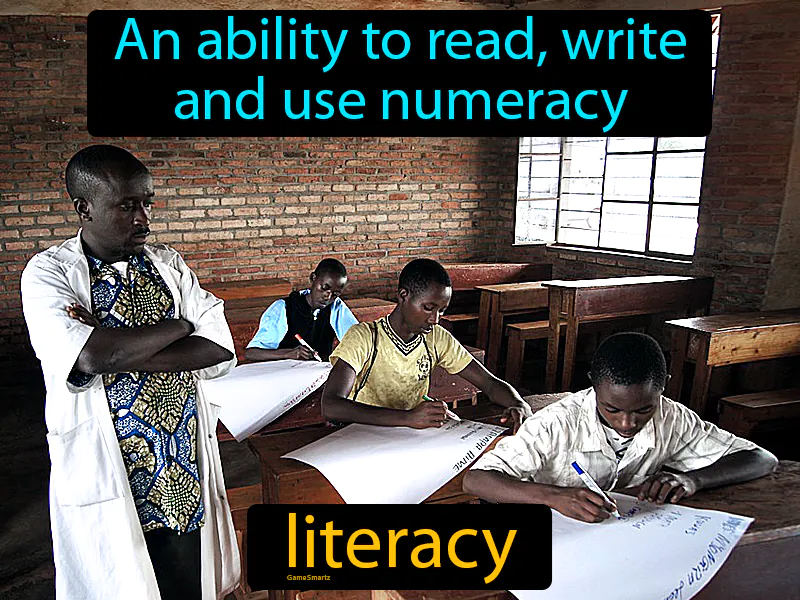Literacy
Literacy: Easy to understand
After 1945, many countries in the developing world started to focus on increasing literacy rates as part of their growth and modernization efforts. At the time, literacy was crucial for improving economic development, political stability, and social progress, as it allowed more people to participate in civic life and access better job opportunities. This focus on literacy responded to problems like poverty and inequality, which were more pronounced in regions with low education levels. Today, literacy continues to be vital because it enables individuals to understand important information, make informed decisions, and communicate effectively. For example, someone who can read and write can apply for jobs online, understand health information, and participate in community activities, improving their life and contributing positively to society.

Practice Version

Literacy: An ability to read, write and use numeracy. Literacy. Literacy is the ability to read and write, which allows people to record and understand historical events.